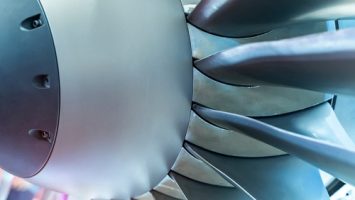“NSF Offers $1.6M in Funding for Tissue Engineering Research Aboard the ISS National Lab”

**NSF Offers $1.6M in Funding for Tissue Engineering Research Aboard the ISS National Lab**
In a groundbreaking initiative aimed at advancing the frontiers of biomedical science, the National Science Foundation (NSF) has announced $1.6 million in funding to support innovative tissue engineering research aboard the International Space Station (ISS) National Laboratory. This funding opportunity underscores the NSF’s commitment to leveraging the unique microgravity environment of space to address critical challenges in regenerative medicine and tissue engineering.
### The Intersection of Space and Biomedical Research
Tissue engineering, a multidisciplinary field that combines biology, engineering, and materials science, focuses on developing functional tissues to repair or replace damaged biological structures. While significant progress has been made on Earth, researchers face persistent challenges, such as replicating the complex three-dimensional architecture of tissues and overcoming the effects of gravity on cell growth and scaffold formation.
The microgravity environment aboard the ISS offers a unique platform to tackle these challenges. In microgravity, cells and tissues can grow and interact in ways that are difficult or impossible to achieve on Earth. For example, microgravity allows for the formation of more natural, three-dimensional tissue structures without the need for scaffolding, providing researchers with new insights into tissue development and regeneration.
### NSF’s Funding Opportunity
The NSF’s $1.6 million funding initiative is designed to encourage researchers to harness the ISS’s microgravity environment to advance tissue engineering and regenerative medicine. The funding will support projects that aim to:
1. **Develop Advanced Tissue Models**: Researchers can use microgravity to create more accurate models of human tissues, which can be used for drug testing, disease modeling, and understanding tissue development.
2. **Study Cellular Behavior in Microgravity**: The ISS provides a unique environment to study how cells grow, differentiate, and interact in the absence of gravity, offering new insights into fundamental biological processes.
3. **Innovate Scaffolding and Biomaterials**: The funding will support the development of novel scaffolding materials and techniques that leverage microgravity to create complex tissue structures.
4. **Explore Regenerative Medicine Applications**: Projects may focus on using microgravity to enhance the development of tissues and organs for transplantation, addressing the global shortage of donor organs.
### The Role of the ISS National Lab
The ISS National Laboratory has become a hub for cutting-edge research across a wide range of disciplines, including life sciences, physical sciences, and technology development. Managed by the Center for the Advancement of Science in Space (CASIS), the ISS National Lab provides researchers with access to the unique environment of space, as well as logistical and technical support for conducting experiments in orbit.
By partnering with the ISS National Lab, the NSF aims to provide researchers with the resources and infrastructure needed to conduct high-impact tissue engineering research. This collaboration also aligns with the NSF’s broader mission to promote the progress of science and advance the health, prosperity, and welfare of society.
### Implications for Science and Medicine
The NSF’s funding initiative has the potential to drive significant advancements in tissue engineering and regenerative medicine. Some of the key implications include:
– **Improved Disease Models**: More accurate tissue models could lead to better understanding of diseases and more effective treatments.
– **Accelerated Drug Development**: Tissue models developed in microgravity could be used to test new drugs more efficiently, reducing the time and cost of bringing new therapies to market.
– **Advances in Organ Transplantation**: Research conducted aboard the ISS could pave the way for the development of lab-grown organs, addressing the critical shortage of donor organs and saving countless lives.
### A Call to Action for Researchers
The NSF’s $1.6 million funding opportunity represents a unique chance for researchers to contribute to the rapidly evolving field of tissue engineering. By conducting experiments aboard the ISS, scientists can push the boundaries of what is possible in regenerative medicine and unlock new possibilities for improving human health.
Researchers interested in applying for this funding are encouraged to submit proposals that align with the NSF’s goals and demonstrate the potential to make a significant impact in the field. The deadline for submissions and additional details about the application process can be found on the NSF’s official website.
### Conclusion
The NSF’s investment in tissue engineering research aboard the ISS National Lab highlights the transformative potential of space-based science. By combining the unique advantages of microgravity with the ingenuity of the scientific community, this initiative has the potential to revolutionize tissue engineering and regenerative medicine, bringing us closer to a future where diseases are more effectively treated, and damaged tissues and organs can be fully restored. As the NSF and ISS National Lab join forces, the sky is no longer the limit—it’s just the beginning.